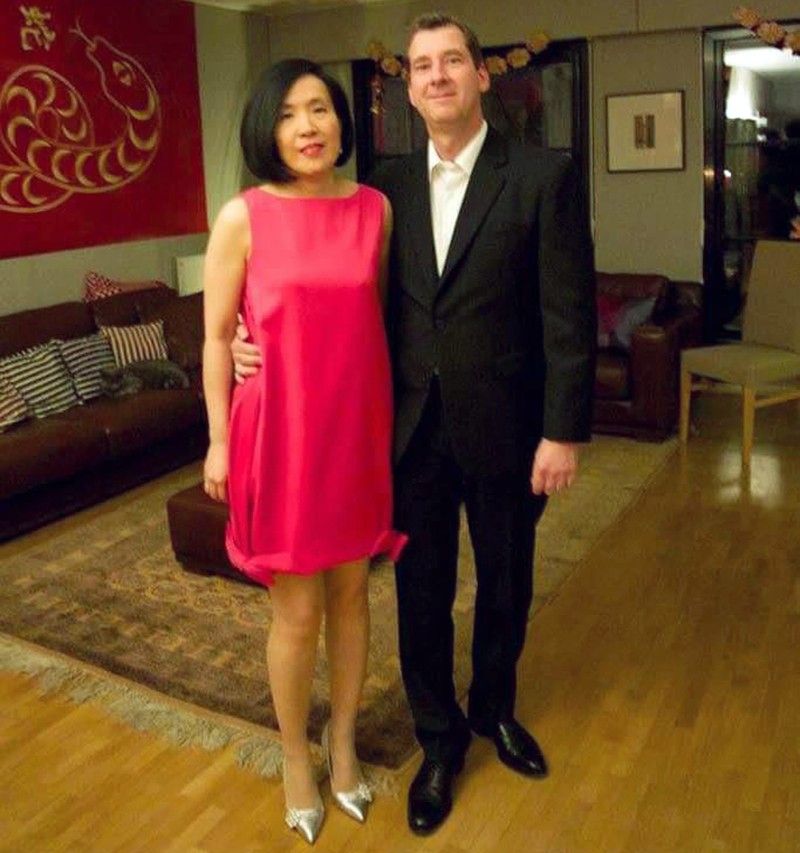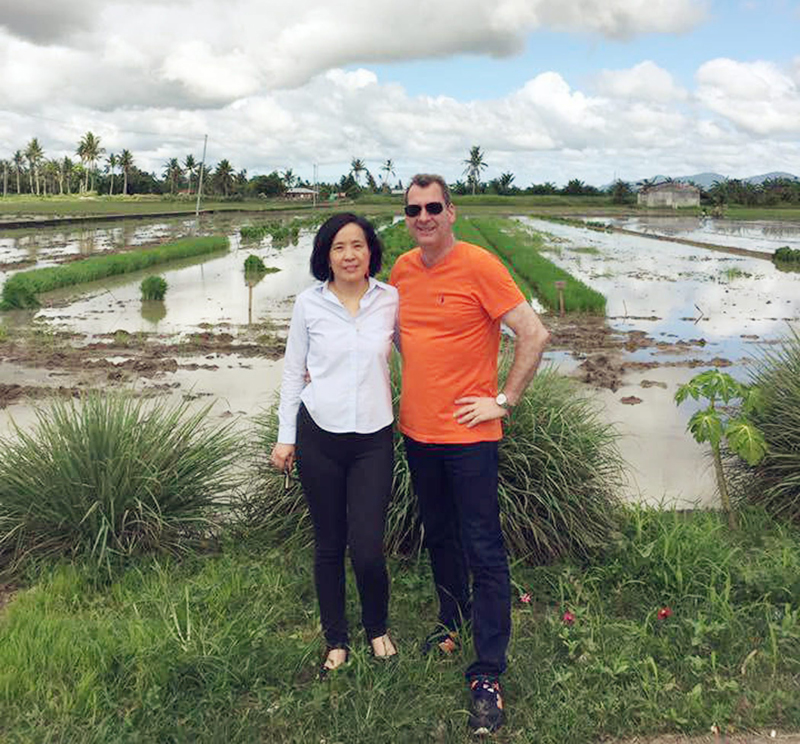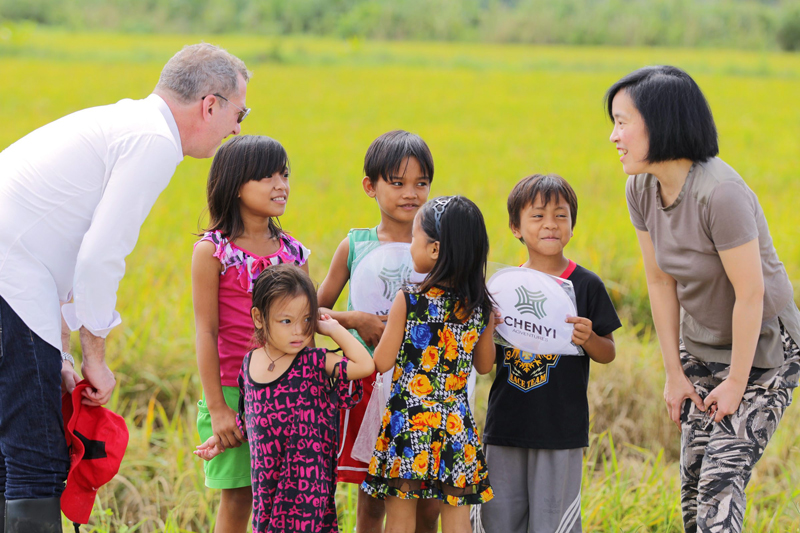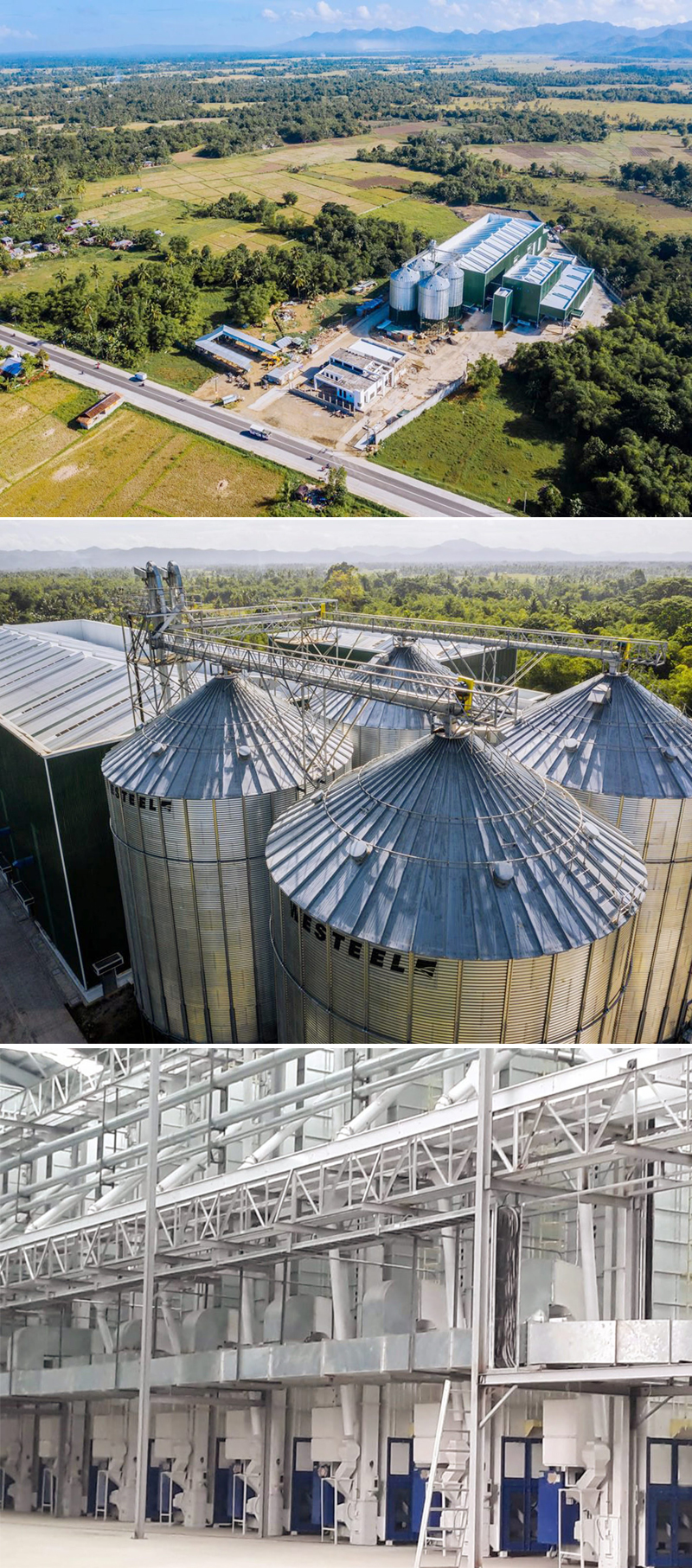The road less traveled: From Paris to Leyte

The Renucci couple Patrick and Rachel had a glamorous life in Paris. Then Yolanda happened. ‘We thought it was time for us to change the way we were living. Money is not the only goal in life.’
MANILA, Philippines — French-Italian Patrick François Renucci and Filipino-Chinese Rachel Marjorie Renucci-Tan were living the good life in Paris. Patrick founded and managed one of the largest printing companies in France while Rachel was an investment banker managing a fund worth over US$1 billion.
“We had a glamorous life,” Rachel relates. “We were partying all the time, drinking champagne, enjoying life in Paris.” They were traveling, skiing at Courchevel in the French Alps and luxuriating in the French Riviera. Occasionally, they came for vacations in the Philippines.
Then Yolanda happened. It was in November 2013 when the most powerful typhoon in recorded history hit and devastated Leyte in the Philippines. When they saw the pictures, “We were shocked,” Patrick recalls. “We were very affected. We thought maybe it was time for us to change the way we were living. Because making money is not the only goal in life. We thought we’d go to Leyte and see what we can do there to help the people to recover from the disaster.”
They landed in Tacloban. “We went around in order to understand the situation,” Patrick relates. “We saw many rice fields.” It was a big surprise to learn that Leyte is a top rice producer in Eastern Visayas. “But there were no post-harvest rice processing facilities,” Patrick remarks. “So we decided to do something about rice because we will be able to help the largest number of people. We said, ‘Let’s build a big rice processing center so we will be able to help the farmers.’”
But they did not know anyone in Leyte. What’s more, neither Patrick nor Rachel had any kind of background in agriculture. Nonetheless, they both had their long years of business experience. Patrick had founded Median Numerique, a digital printing company and Comelli-Technic Imprim-Median Impressions which was one of the largest printing companies in France.

Patrick and Rachel in Leyte rice field: When President Duterte inaugurated their processing plant in Leyte, he recognized and thanked the Renucci couple profusely. ‘I cannot make Patrick a saint, but I can offer him Filipino citizenship.’
“We printed coffee table books for the Louvre, Versailles, and annual reports for big corporations like L’Oréal,” he relates. He had over 20 years of experience in operating and managing large industrial printing machines, which are far more complex than the rice mills, silos and dryers that they would be putting up in the rice processing center.
Rachel holds a bachelor of arts degree in philosophy from Hampshire College and an MBA from INSEAD. For over 15 years, she worked in real estate investment banking, at Macquarie Capital and HSBC in London and at Societe Generale in London and Paris. In 2009, she founded her own boutique real estate funds investment management company based in Hong Kong, and managed a fund worth over US$1 billion.
“After being a fund manager for 18 years, I realized that what I was doing had lost meaning,” Rachel remarks, “because basically you are selling pieces of paper or units of a fund to an investor and waiting to see in seven years if that makes money or not. How well the fund performs is not entirely in your control. There are other forces that contribute to the performance of the fund. So the good that you do as a fund manager is limited to the performance of the funds. For me, that was too limiting in terms of the value that I wanted to create for the world.”
After living abroad for more than half of her life, Rachel returned to the Philippines and founded Chen Yi Agventures in 2015. “CYA is a sustainable and fully-integrated rice processing business whose profits depend on uplifting farmers from poverty, increasing their productivity and providing Filipinos with locally produced, high-quality rice,” Rachel explains. “CYA is also committed to helping our country achieve national self-sufficiency in rice.”
They bought land in Alangalang, a second class municipality located about 25 kms south of Tacloban City, “where we built the most technologically advanced rice processing complex in Southeast Asia,” Patrick remarks. Fully automated, the entire process is centralized and operated from a single control room with touch-screen monitors. Palay is stored in temperature-regulated silos, keeping it chilled at a constant temperature so the grains remain fresh. This also guarantees clean and pest-free grains, ready for state-of-the-art milling. It utilizes breakthrough Japanese technology for air purification, purging dust and dirt from the drying and milling process.

With children of farmers in Alangalang, Leyte
The buildings were built to be typhoon-proof, to withstand 350 kph winds that would be even stronger than Yolanda. “Because we cannot come here and invest and maybe tomorrow, there is a typhoon again,” Patrick says. Five hundred piles 21 meters deep were driven into the ground to make the buildings earthquake-proof.
They did a survey among 4,000 farmers and found three major problems. First, the farmers were planting very bad seeds since they did not know where to find good seeds to plant. Second, they lived in a cycle of debt, borrowing money at usurious interest rates. And third, there were no more laborers. The young people were getting more educated and they did not want to work on the farms anymore. They would rather work at call centers in the city. “Farming is about food security,” Patrick says. “We have to change the way people look at the farm, because food is so important.”
Patrick and Rachel set up the Renucci Partnership Program. They had an agreement to buy seeds through Phil Rice of the Department of Agriculture, which managed good seed growers. They provide the seeds to farmers at zero interest loan rates, and all the rest of the inputs at very low interest. They introduced basic mechanization here, and were the first to bring to Leyte the combine harvester, a versatile machine that combines into a single process three separate harvesting operations — reaping, threshing, and winnowing.
“All the people were stopping when they saw it in the field — ‘the beast,’ they called it,” Patrick shares. They now have 10 combine harvesters that can harvest one hectare in two hours, whereas before, it took 20 people to do it manually in one day. They also have 10 field technicians working full time to address any problems of the farmers.
“We are not farming,” clarifies Patrick. “We are just helping the farmers, from seed growing to post-harvest operations.” They now have 700 individual farmers with an average of one hectare each under their partnership program. With mechanized land preparation, planting and harvesting, through the use of proper technology and monitoring, the yield is improved at reduced cost thereby increasing the farmers’ income by tenfold.
“Some of the farmers who joined our program have already reached 200 cavans per hectare, whereas before, they were collecting only between 50-60 bags of palay per hectare. They’ve already had eight cropping and the next harvest in September-October this year will be their ninth. All of these are in-bred seeds, not hybrid. These are local Filipino grains, which are better, tastier,” Patrick says.

Typhoon proof: An aerial view of the Renucci’s rice processing center which has four silos and dryers.
They buy 100 percent of the harvest from the farmers at a sustainable price, dry the palay and mill it to produce the rice. “At the moment, there is a disconnect between the farmers and the rice millers who build their processing centers and buy palay from various sources, some even imported rice, and mix them all during milling,” Rachel explains. “Our program is based on contract farming. So we deploy advanced technology in order to produce ultra-premium quality rice that is milled on demand and delivered to the Filipino consumer at an affordable price.” Dalisay ultra-premium rice, which is the first variant under the Renucci Rice brand, is now available in supermarkets in Metro Manila such as SM, Robinsons, Landmark and Puregold.
The initial feedback has been very encouraging. “Many would say that it’s similar to Japanese rice, malagkit lagkit, manamis namis,” says Rachel. But unlike short grain rice, which is very starchy and sticky when cooked, Renucci rice is long grain, which contains less starch. Renucci rice is freshly harvested and freshly milled. It has a clean taste.
When President Duterte inaugurated their processing plant in Leyte, he recognized and thanked the Renucci couple profusely. “He said he cannot make Patrick a saint, but he can offer him Filipino citizenship,” Rachel relates.
It had been a long and not so easy road, from Paris to Alangalang. “We gave up our comfortable life in Paris to be here. Who would do that?” Rachel says. “Of course, we miss the old life, but we have no regrets,” Patrick says. They are here for good. “We are both type-A personalities,” Rachel says. “When we start something, we are determined to see it through to the end.”
“One of our goals is to be the largest rice processing in Mindanao and the Visayas. With the increased yield and production volume, we can bring down the cost and be competitive with our Vietnamese and Thai counterparts so we will have less reason to import,” Rachel says. She calls it the Rice Revolution. “Our fervent hope is that our model will be replicated nationwide by other rice producers. Then our dream of the Philippines becoming self-sufficient in rice can come true.”















